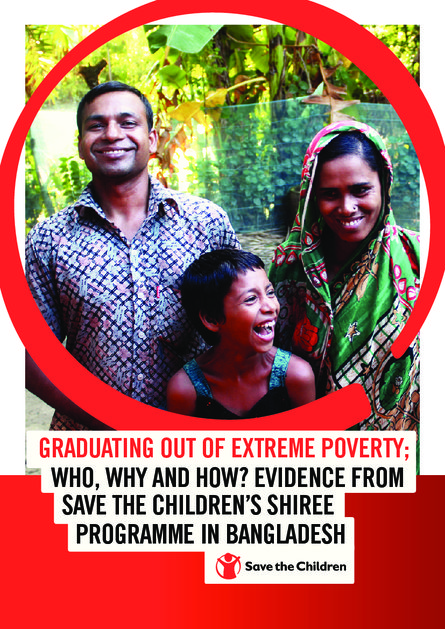
Typically led by nongovernmental organisations (NGOs), graduation programmes consist of targeting poor households with a combination of layered and sequenced interventions, often over a defined period of time, in order to facilitate the achievement of strengthened and sustainable livelihoods. The ‘graduation’ component refers to the ability of these livelihood strategies to prevent the household from falling back into poverty.
This paper seeks to contribute to the ongoing dialogue around graduation approaches by drawing on the lessons of Save the Children’s Economic and Food Security project, which was based on a graduation model. The paper draws on Save the Children’s SHIREE experience of reaching the poorest and most marginalised, raising them out of extreme poverty and supporting them to be self-reliant.
